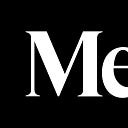“Nature is the ultimate computational machine”
🍂 Hello, it’s Tuesday! And, for the first time in weeks, it truly feels like fall here in NYC.
Issue #195: the arrival fallacy + asking better questions
By Harris Sockel
The Nobel Prize in physics tends to go to astrophysicists or molecular physicists — people who study very big things (space!) or very tiny things (electrons). A few weeks ago, though, it went to two scientists working on AI.
A brief history of the Nobel Prize, because I was curious: It was established by Swedish chemist and businessman Alfred Nobel, who invented dynamite. Sounds violent, but dynamite was far safer than most explosives in the late 19th century, and Nobel earned around 31 million Swedish kronor (~$200 million today) when people used his invention to build mines and railways across the U.S.
With that fortune, Nobel established his prize — a $1 million award to anyone whose work benefits humanity.
As the Royal Swedish Academy of Sciences explained in its winners announcement, AI researchers John Hopfield and Geoffrey Hinton’s neural networks mimic the way our brains create memories. Ever heard the phrase “neurons that fire together wire together”? That’s Hopfield’s network… but on a computer, not in your head.
Hopfield and Hinton’s work led to technologies like facial recognition, automated translation, and (of course) LLMs. On Medium, data scientist Tim Lou, PhD, explains why AI research falls under the umbrella of physics. “I’m a firm believer that nature is the ultimate computational machine,” he writes, and “if humanity were to ever develop true artificial intelligence, I have no doubt it must have a foundation based on our physical laws.”
⚡ Lightning round: Great, recent Medium stories in 2 sentences or less
- Design thinking (a methodology for understanding what your customers want, beginning with empathy) is a spiritual successor to the scientific method — a way to solve any problem in the modern age. (Hal Wuertz)
- About to achieve a big personal dream — say, publishing your novel, running a marathon, or taking a company public? Get ready for the arrival fallacy: that gnawing feeling of not-enough-ness when you achieve a long-held goal. (Maria Cassano)
- Hawaii has the dirtiest energy in the U.S. (who would’ve thought…) because each island must produce its own power. The cleanest energy systems are large and interconnected, balancing multiple sources to conserve resources. (Matt Traverso)
Your daily dose of practical wisdom
One of the secrets to being more likable: ask better questions.
Deepen your understanding every day with the Medium Newsletter. Sign up here.
Edited and produced by Scott Lamb & Carly Rose Gillis
Questions, feedback, or story suggestions? Email us: tips@medium.com
Love this email? Read without limits or ads, fund great writers, and join a community that believes in human storytelling with membership.

